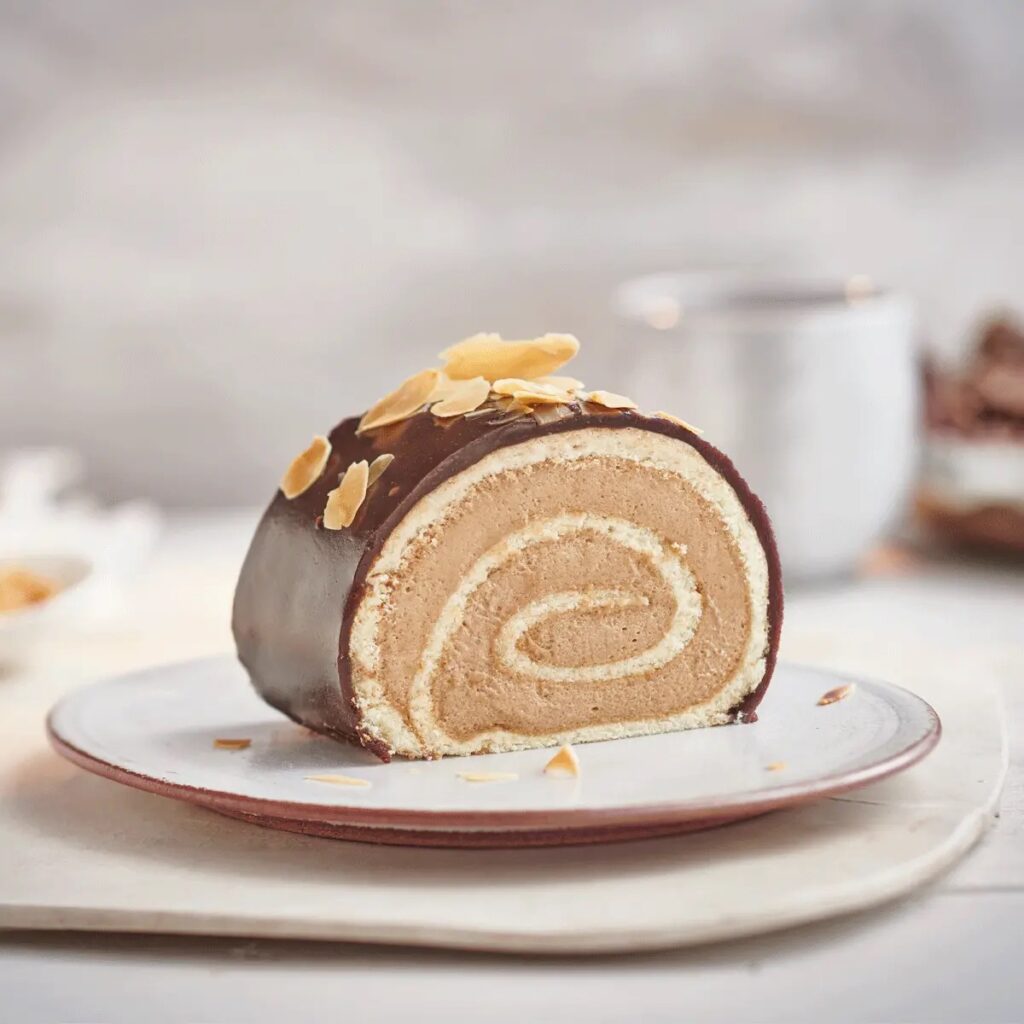
German bakery giant Martin Braun-Gruppe has partnered with London-based food tech startup Win-Win to introduce two cocoa-free chocolate coatings for manufacturers.
Martin Braun-Gruppe is the latest confectionery player to dive into cocoa-free chocolate, having struck a deal with British firm Win-Win.
The distribution agreement will see Martin Braun add two glazes based on Win-Win’s vegan milk chocolate and dark chocolate to its portfolio, enabling retailers, wholesalers, and foodservice clients access to a low-carbon alternative for their baked goods.
“We are delighted to enter into this partnership with Martin Braun, who have a fantastic reputation in the bakery sector and unrivalled customer networks,” said Win-Win CEO Mark Golder.
Cocoa-free alternative uses same techniques as conventional chocolate

Formerly called WNWN Food Labs, Win-Win is modernising carob-based chocolate by combining the ingredient with tiger nuts, sunflower seed, and rice, alongside RSPO-certified palm oil.
The company employs the same techniques found in conventional chocolate making, from fermentation to roasting, grinding, refining and tempering. Its cocoa alternatives, which come in meltable button and liquid formats and can be used to make a range of desserts and baked goods at scale – think pastries, doughnuts, cookies, cakes, and coatings.
The partnership with Martin Braun – which invested in Win-Win in 2023 – focuses on the latter. The vegan glazes are produced using raw materials available within Europe, melt at 50°C, and deliver up to three times higher yields than couverture chocolate.
The ingredients of both options are nearly identical. The cocoa-free dark chocolate coating blends palm oil and sugar with roasted carob powder, tiger nut flour, sunflower seed protein, fermented rice, lecithin, natural flavourings, and salt. The dairy-free milk chocolate alternative, meanwhile, adds dehydrated oat syrup to that base.
Martin Braun has produced a book of recipes to showcase the use cases of Win-Win’s alternatives to its roster of baking, confectionery and catering industry clients. These include a Williams Pear petit gâteau, an Amaretto roulade, tartlets, nut corners, and more.
“We are proud that they have chosen Win-Win as their exclusive partner to develop the fast-growing alt-choc sector, and we are enjoying working with them to deliver a more sustainable solution to chocolate for customers and consumers,” Golder said.
Chocolate alternatives offer industry more viable solution

The cocoa-free chocolate coatings will appeal to Martin Braun’s customers, who are actively looking for alternatives that offer more stable supply chains, lower costs, and better climate credentials.
Climate change has caused global cocoa stocks to slump to their lowest in a decade. Plantations in Ivory Coast and Ghana – the two largest producers – are the hardest hit due to extreme weather and crop diseases. That has caused cocoa prices to reach all-time highs, and the trend is set to continue this year.
Scientists have warned that cocoa trees are threatened, and a third of them could die out by 2050, which could lead to a global chocolate shortage. At the same time, dark chocolate is a highly emissive product, generating more greenhouse gases than all other foods except beef. Meanwhile, a bar of chocolate requires 1,700 litres of water to produce on average.
Industry leaders are feeling the effects. For example, Hershey’s profit forecast for 2025 was below analysts’ expectations, and it has just announced a double-digit hike in product prices due to high cocoa costs.
“We all love chocolate, but the way it’s currently produced isn’t sustainable. Climate change is leading to reduced yields, causing spiralling prices and supply-chain uncertainty,” said Golder.
“As consumers, we’re already seeing the impact of this in the form of rising prices and shrinkflation, and the cocoa industry continues to be troubled by issues relating to deforestation. The industry is at an inflexion point and needs alternative solutions that are stable and more environmentally and socially sustainable.”
Win-Win’s chocolate alternatives use up to 80% less water and generate 82% fewer CO2e emissions. They’ve been used at Toad Bakery and Lyaness bar in London, and Sem, a wine bar in Lisbon, and the firm has also rolled out dark chocolate thins, a Daim-style Waim! bar, and copycat versions of Cadbury Wholenut, Terry’s Orange and Tony’s Chocolonely on limited runs with its consumer brand.
The startup, which has raised $5.6M to date, is among a host of innovators in the alternative chocolate space. This includes cocoa-free players like Planet A Foods, Compound Foods, Voyage Foods, Prefer, Foreverland, Nukoko, and Endless Food Co, as well as cell-based chocolate makers California Cultured, Celleste Bio, Kokomodo, and Food Brewer.
The post Martin Braun-Gruppe Embraces Cocoa-Free Chocolate with Win-Win Partnership appeared first on Green Queen.
This post was originally published on Green Queen.